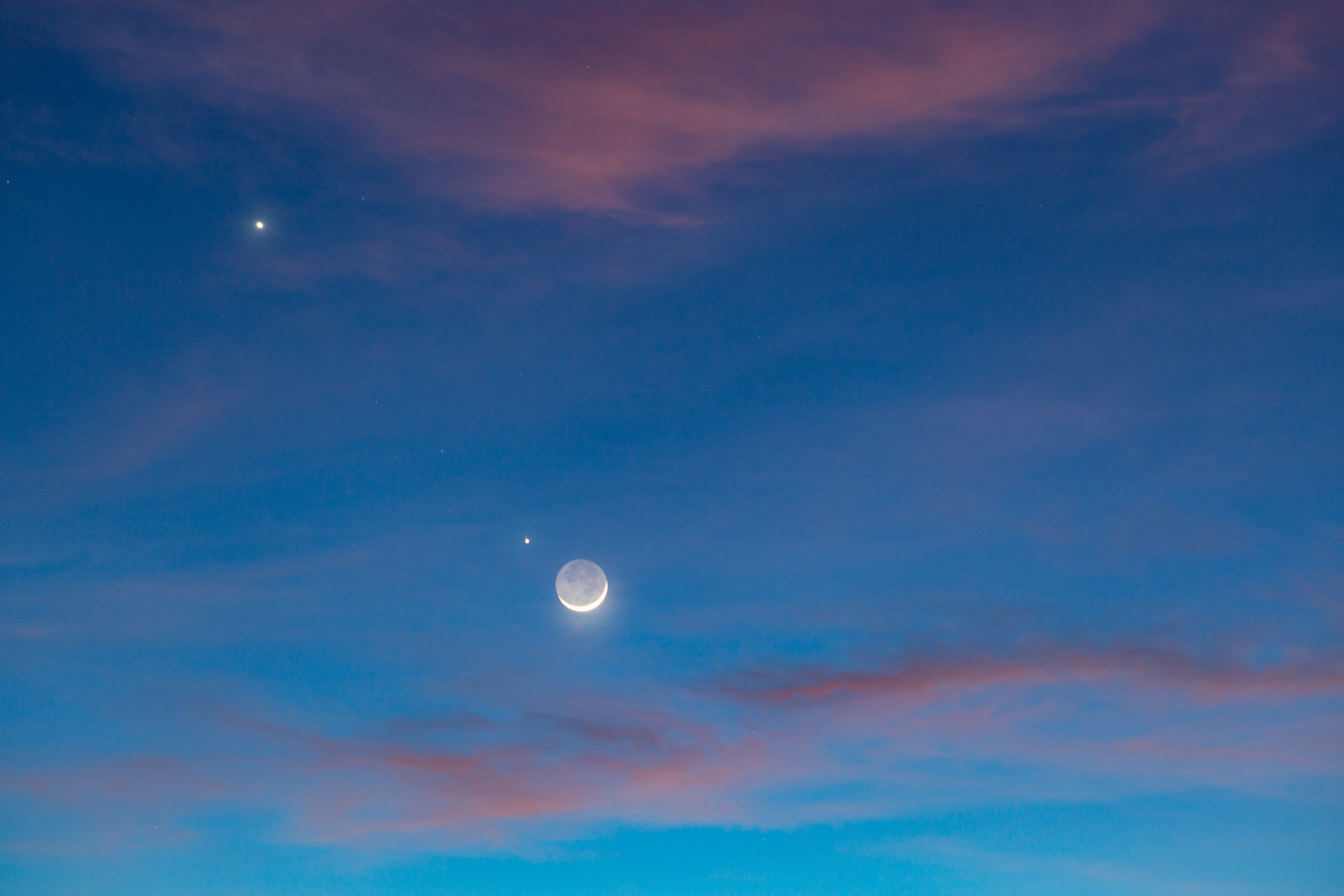How to watch 5 planets align in the night sky on Tuesday


A free daily email with the biggest news stories of the day – and the best features from TheWeek.com
You are now subscribed
Your newsletter sign-up was successful
Five planets will align in the night sky on Tuesday evening in a stunning astronomical spectacle. The alignment of Mercury, Venus, Mars, Jupiter, and Uranus will be visible starting on Tuesday and mostly continue through Friday, CNN reports.
The planets will appear "kind of like pearls on a necklace," according to Cameron Hummels, a computational astrophysicist at the California Institute of Technology. According to experts, Tuesday is the best day to see the sight and binoculars may be necessary, especially to see Mercury and Uranus which are dimmer than the others, per The Associated Press.
The phenomenon can be seen from both the northern and southern hemispheres as long as there are clear skies and a view of the west. Venus will be the easiest planet to see, being the brightest of the bunch. In order to see all five planets, you should look at the sky just after sunset, because Jupiter and Mercury will dip below the horizon just after, according to NASA astronomer Bill Cooke.
The Week
Escape your echo chamber. Get the facts behind the news, plus analysis from multiple perspectives.

Sign up for The Week's Free Newsletters
From our morning news briefing to a weekly Good News Newsletter, get the best of The Week delivered directly to your inbox.
From our morning news briefing to a weekly Good News Newsletter, get the best of The Week delivered directly to your inbox.
Planetary alignments appear every so often, with the last five-planet one occurring last summer and another one coming up in June with different planets, per AP. This one is rare because much of it can be seen with the naked eye even in areas with light pollution. In February, Jupiter and Venus crossed paths in the night sky.
"That's the beauty of these planetary alignments. It doesn't take much" to enjoy, Cooke remarked.
A free daily email with the biggest news stories of the day – and the best features from TheWeek.com
Devika Rao has worked as a staff writer at The Week since 2022, covering science, the environment, climate and business. She previously worked as a policy associate for a nonprofit organization advocating for environmental action from a business perspective.
-
 Political cartoons for February 14
Political cartoons for February 14Cartoons Saturday's political cartoons include a Valentine's grift, Hillary on the hook, and more
-
 Tourangelle-style pork with prunes recipe
Tourangelle-style pork with prunes recipeThe Week Recommends This traditional, rustic dish is a French classic
-
 The Epstein files: glimpses of a deeply disturbing world
The Epstein files: glimpses of a deeply disturbing worldIn the Spotlight Trove of released documents paint a picture of depravity and privilege in which men hold the cards, and women are powerless or peripheral
-
 NASA’s lunar rocket is surrounded by safety concerns
NASA’s lunar rocket is surrounded by safety concernsThe Explainer The agency hopes to launch a new mission to the moon in the coming months
-
 Nasa’s new dark matter map
Nasa’s new dark matter mapUnder the Radar High-resolution images may help scientists understand the ‘gravitational scaffolding into which everything else falls and is built into galaxies’
-
 Moon dust has earthly elements thanks to a magnetic bridge
Moon dust has earthly elements thanks to a magnetic bridgeUnder the radar The substances could help supply a lunar base
-
 How Mars influences Earth’s climate
How Mars influences Earth’s climateThe explainer A pull in the right direction
-
 The ‘eclipse of the century’ is coming in 2027
The ‘eclipse of the century’ is coming in 2027Under the radar It will last for over 6 minutes
-
 NASA discovered ‘resilient’ microbes in its cleanrooms
NASA discovered ‘resilient’ microbes in its cleanroomsUnder the radar The bacteria could contaminate space
-
 Artemis II: back to the Moon
Artemis II: back to the MoonThe Explainer Four astronauts will soon be blasting off into deep space – the first to do so in half a century
-
 The mysterious origin of a lemon-shaped exoplanet
The mysterious origin of a lemon-shaped exoplanetUnder the radar It may be made from a former star
